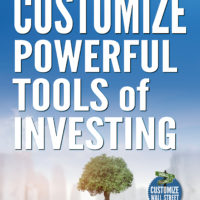As a person raised in a prior century, it’s challenging for me to observe “millennials” raised in today’s digital world with a primary focus on “now”. Their exposure to “new” information and ways of the world arrive primarily through “sound bites” and “bullet points”. It’s not due to any fault of theirs, but most young folks have never encountered a typewriter, a dial telephone, or even a “land-line” in their house. Going to a movie theatre is rare. Today’s youngsters get their first cinema experiences in the back seats of family vehicles while driving to visit grandma or to the supermarket.
Because of today’s health and medical advances, more of today’s teens have a probability of living to 100 than did any prior generation. The problem for them is that it’s all about feeling good at this very moment. I’m sure that to them the idea of reaching age 100 is unimaginable. Even preparing for their needs at age 65 or 70 is too far away to consider.
These observations lead me to feel that it is important to grab the attention of recent college graduates and members of their generation even while their focus is aimed at establishing careers, choosing life partners, and raising families.
According to some mortality statistics, today’s younger generations will live just as long (if not longer) after the age of retirement as before. I sincerely wish for a future when all of today’s young folks will enjoy a higher quality of life during their golden years than they even enjoyed while raising families and managing their careers.
With that in mind, I have adopted as my personal goal to inform and encourage young Americans in their 20s and early 30s to think about and plan for their future. I feel it can be done in ways that are neither painful nor with sacrifice. I strongly feel people can work on building a nest egg for their future needs without reducing their quality of life today.
The first thing to realize is that life is one long journey (at least that’s what we hope for) and that many years into the future, that point in time will eventually become “now”. If you took steps along the way to provide for your future years after retirement, you will be hugely gratified that you did so. If you neglected that opportunity, you might very well scold yourself for failing to do so.
So, what can young people do who don’t make a lot of money (and even those who do make good income), to meet current needs, and still plan for the future?
My first recommendation is try to think of your personal financial situation as if it were a small business, no matter how much or how little you make from your job. The most successful businesses, both large and small, understand a necessary balance between their expenses to keep the business running and the income they receive to keep the enterprise running. Whatever amount is the excess of income greater than the expenses, a portion of that amount (the profit) can be set aside for future needs.
Even the Smallest Amount Counts.
It’s sometimes hard to do, but if you can keep your expenses (food, housing, clothing, entertainment) within your monthly earnings, then there is at least a little bit than be saved to build a nest egg for the future, when you will no longer have employment income. No matter how little you have left over, put even a few dollars away for that future “now”.
Make Saving a Habit.
The next logical step is to adopt a habit of setting aside whatever amount you can manage (without sacrificing your current lifestyle) on a regular basis. It doesn’t matter if it’s $10 a week, or $100 a month, or whatever your situation allows. Develop a habit of doing this month after month, year after year, You will soon be surprised that you are building a growing fund for your future.
There is another way of looking at this. If we can teach young children, even at the ages of 3 and 4, to put a few coins into their piggy bank, why can’t we instill that same habit in ourselves as we embark on our employment careers?
Take Advantage of Employer-Sponsored Retirement Plans
Those who acquire employment at medium and large corporations usually are given opportunities to participate in employer-sponsored retirement savings plans, such 401(k) and 403(b) plans. I recommend taking full advantage of participation in such opportunities. There is little thinking involved, as your employer routinely makes the appropriate payroll deductions from each paycheck.
Set Up and Individual Retirement Account
For those who work for employers without such retirement plans, it requires a small amount of extra discipline, with close to the same result. Under federal and state tax law, individuals who set up individual retirement accounts (IRA accounts) generally received tax savings benefits for contributing on a regular basis to such plans.
With the help of a financial advisor or an estate planner, you can receive guidance about setting up a plan into which you can habitually make contributions toward retirement, in whatever amount you can afford.
Learn to Invest
I often advise people that there are two components to building a successful nest egg for retirement or other financial goals. Saving on a regular and habitual basis is where we start. The second part of plan is investing the money that has been saved. In a later article I will address the investing part. That portion of any plan has to begin with the habit and discipline of saving on a regular, continuous basis.








